 Petzlover
Petzlover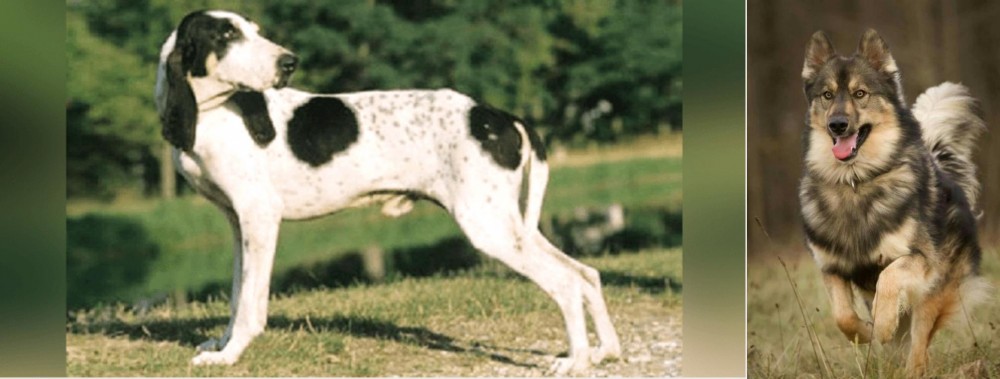 Ariegeois is originated from France but Native American Indian Dog is originated from United States. Ariegeois may grow 24 cm / 10 inches higher than Native American Indian Dog. Ariegeois may weigh 93 kg / 205 pounds lesser than Native American Indian Dog. Ariegeois may live 5 years less than Native American Indian Dog. Ariegeois may have less litter size than Native American Indian Dog. Ariegeois requires Low Maintenance. But Native American Indian Dog requires High Maintenance
Ariegeois is originated from France but Native American Indian Dog is originated from United States. Ariegeois may grow 24 cm / 10 inches higher than Native American Indian Dog. Ariegeois may weigh 93 kg / 205 pounds lesser than Native American Indian Dog. Ariegeois may live 5 years less than Native American Indian Dog. Ariegeois may have less litter size than Native American Indian Dog. Ariegeois requires Low Maintenance. But Native American Indian Dog requires High Maintenance
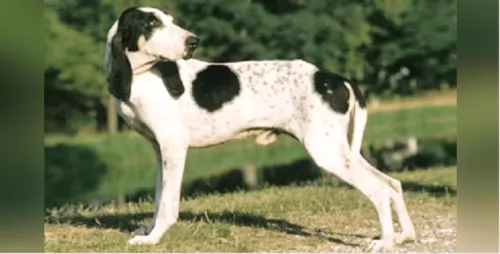 The Ariegeois is a fairly new breed, believed to have originated in France in 1912. As a scent hound, it is a blend of 3 French scent hounds - Grand Gascon-Saintongeois, Grand bleu de Gascon and the Briquet.
The Ariegeois is a fairly new breed, believed to have originated in France in 1912. As a scent hound, it is a blend of 3 French scent hounds - Grand Gascon-Saintongeois, Grand bleu de Gascon and the Briquet.
Just to show you how ancient these breeds are, the Grand bleu were thought to have been brought to France by an ancient civilization, the Phoenicians, who traded wares and dogs. The Briquet is native to southern France but they have been used as hunting dogs as far back as pre-Roman times.
As the breeds mixed, the Ariegeois came about. A popular pack dog emerged with an excellent sense of smell that would stand the dog in good stead for hunting. Today, while still fairly uncommon beyond French borders, the dog is highly regarded for its extraordinary hunting abilities and his loyal, affectionate nature towards his human companions.
 The Native American Indian Dog is an ancient breed, that some consider to be feral. It is a landrace breed that developed with the indigenous peoples North America. These dogs originally looked and sounded like wolves and it is likely that their ancestry is tied to wolves crossed with pre-Columbian American dogs that came to the America’s with the first peoples. There are some that believe the Native American Indian Dog is a connecting line back to the dogs or wolves that over 12,000 years ago were the first to be domesticated by human beings.
The Native American Indian Dog is an ancient breed, that some consider to be feral. It is a landrace breed that developed with the indigenous peoples North America. These dogs originally looked and sounded like wolves and it is likely that their ancestry is tied to wolves crossed with pre-Columbian American dogs that came to the America’s with the first peoples. There are some that believe the Native American Indian Dog is a connecting line back to the dogs or wolves that over 12,000 years ago were the first to be domesticated by human beings.
They are now a rare breed in the wild and a small group of domesticated dogs. Fossil studies in recent years suggests that the Native American Indian Dogs came to North America about 4500 years after the first indigenous peoples. It is believed that the Native Americans bred the dogs that traders and explorers brought with them to the native coyote as well. This created a breed specific to North America and called the Common Native Dog or the Common Indian Dog. The original NAID was a mix of many different breeds of dogs and wild canines.
Today’s NAID is said to be raised on Indian reservations in the United State and represent a mix of Chinook, Husky, German Shepherd Dog and Malamute, along with perhaps some of today’s wolf mixed in. This dog is raised domestically and is socialized to life with humans. They are the last remaining breed from all the Native North American dogs that lived with the original people of the Americas. They are also thought to have an ancestry similar to the Australian Dingo.
They are a devoted, protective and loyal breed though they tend to be shy. They need to be outside for the majority of the day and don’t do well in crates. They need a fenced yard and room to roam. They are working dogs that hunted, pulled sleds and guarded their homes. They still need a job to so.
Today the North American Indian Dog is being bred to replicate the temperament and appearance of the originals. Although there are many breeders working from the founding breeder with original stock, there are only six that are officially given authorization to breed the NAID. They are registered by Terra Pines with the National Kennel Club but not recognized by the AKC and UKC.
The breed name NAID is trademarked by Karen Markel of Majestic View Kennels in the 1990’s. Today the breed is nationally recognized as a breed very much like the original Native American dogs, The breed is intelligent and quite healthy. They enjoy people and engage in many companion activities.
Whatever its true ancestry the current Native American Indian Dog (NAID), today’s version is not recognized by the AKC, but they are recognized by the Dog Registry of America, the Native American Indian Dog Registry and the National Kennel Club.
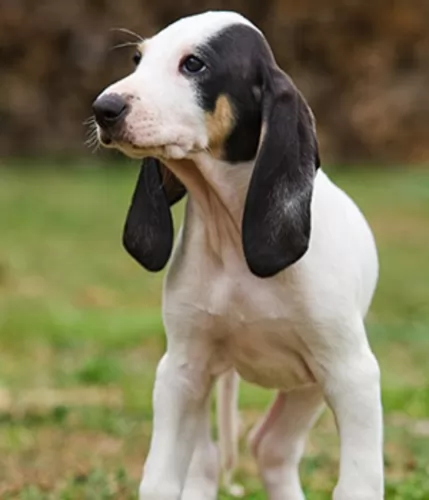 The amicable-looking medium-sized Ariegeois dog, also known as the Ariege Hound, has a lean, muscled body. This dog breed isn’t just suitable as as working breed, but his kind face tells you he has a good temperament and he makes for an affectionate family pet and friend as well.
The amicable-looking medium-sized Ariegeois dog, also known as the Ariege Hound, has a lean, muscled body. This dog breed isn’t just suitable as as working breed, but his kind face tells you he has a good temperament and he makes for an affectionate family pet and friend as well.
The Ariegeois gets along well with children in the family. Gentle and patient, you want to teach your children to also be gentle, patient and kind around this affectionate canine. Early socialization and training, as with any dog breed, will be important for this energetic dog, and training will make him a wonderful family pet.
With their trim, athletic build, deep chest and slightly forward lean similar to that of a Pointer dog, the scenthound’s white coat with black markings is short and smooth.
One of the more noticeable features of the dog is his long ears which are lovely and soft to touch. With his dark brown, soulful eyes, his black nose and slightly curved tail, the Ariegeois has a deep, throaty bark.
 There are two sizes of the North American Indian Dog – they are medium and large. They have dense short double coats, or they have long top coats and a fairly dense undercoat. They come in a variety of colors mostly black or silver but there is also a tortoiseshell. These tortoiseshell colored dogs are considered by Native Americans to be sacred beings. These tortoiseshell dogs are strikingly good looking and are called Spirit Dog.
There are two sizes of the North American Indian Dog – they are medium and large. They have dense short double coats, or they have long top coats and a fairly dense undercoat. They come in a variety of colors mostly black or silver but there is also a tortoiseshell. These tortoiseshell colored dogs are considered by Native Americans to be sacred beings. These tortoiseshell dogs are strikingly good looking and are called Spirit Dog.
They all have the look of a Siberian Husky or Alaskan Malamute with upright ears and almond shaped eyes that are anywhere from amber to brown with some blue. Usually their tails are down and long but can be curled. They resemble the wolf and have that wild, feral appearance. They can be as large as over one hundred pounds or average seventy to eighty pounds. They are strong, alert and intelligent. They are considered to be hypoallergenic, shedding their coat only once a year.
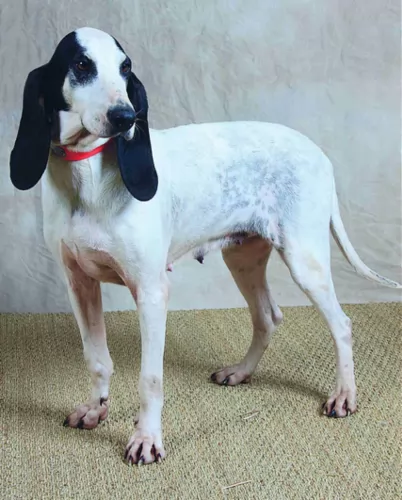 Your wonderful Ariegeois wants to be your lifelong companion, and you can expect all the wonderful characteristics to be evident in this canine if you buy him from a reputable breeder. When you bring him home, make sure he has a warm, dry, comfortable sleeping area, and in exchange for this provision he will be your loyal, devoted friend.
Your wonderful Ariegeois wants to be your lifelong companion, and you can expect all the wonderful characteristics to be evident in this canine if you buy him from a reputable breeder. When you bring him home, make sure he has a warm, dry, comfortable sleeping area, and in exchange for this provision he will be your loyal, devoted friend.
Spayed or Neutered saves you from Unwanted Puppies
If you don’t intend your Ariegeois becoming a parent have your dog spayed or neutered by 6 months of age.
Your Ariegeois is intelligent and easy to train and can be guaranteed to be your best friend and will be your loyal companion through thick and thin. In exchange for this priceless friendship, you need to be a responsible dog owner to ensure his health and happiness.
 This breed is gentle and loving with children.
This breed is gentle and loving with children.
Endurance, strength and good health.
Low adaptability to small living spaces and lack of outside space; don’t do well in crates and need an experienced dog owner.
They are highly intelligent, love to learn and are just a little stubborn.
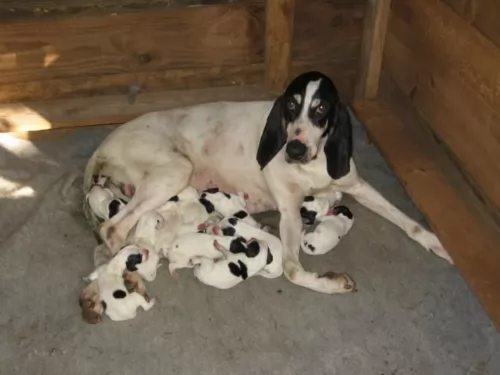 There are a number of illnesses that are common to all dog breeds. Some of the more common dog illnesses are -
There are a number of illnesses that are common to all dog breeds. Some of the more common dog illnesses are -
No Standard Health Problems – Get Puppy Vaccinations
There are no specific health problems linked to the Ariegeois Dog but he will still need to get his regular puppy vaccinations -
 This is a fairly healthy, long lived breed having spent so much of its history in isolation. They are prone to some of the issues that affect all medium to large breeds.
This is a fairly healthy, long lived breed having spent so much of its history in isolation. They are prone to some of the issues that affect all medium to large breeds.
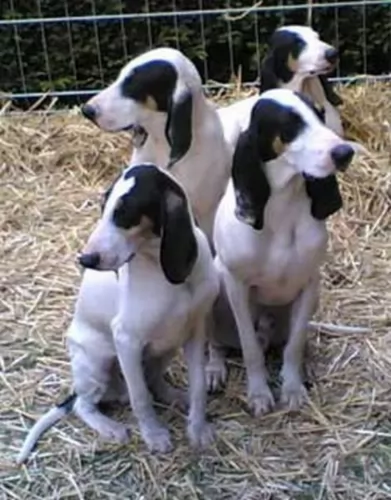 The Ariegeois is a relatively low maintenance dog and his short coat will require a good brush at least once a week. You don’t have to bath him often as this strips natural oils away that make his coat shiny and glossy. Check those long ears and make sure that no leaves, grass and dirt are lodged deep within the ears.
The Ariegeois is a relatively low maintenance dog and his short coat will require a good brush at least once a week. You don’t have to bath him often as this strips natural oils away that make his coat shiny and glossy. Check those long ears and make sure that no leaves, grass and dirt are lodged deep within the ears.
There are thousands of options for dog foods and the first step is to chat to your veterinarian about the best food for your to meet his nutritional needs during each stage of his life. It is difficult to determine diet quality for you dog from the label.
Wet or dry dog food, it is important to have high quality ingredients from a dog food manufacturing company that has the expertise to produce dog food that meets your pet’s nutritional needs. Protein is highly important for your pet and many dog owners make their own dog food. Raw meat is imperative for the health of your dog, but before switching to a raw diet, chat to your veterinarian. Do research on different brands - there are good and bad brands and your pet needs to be protected from false claims. Always make sure your pet has access to fresh, cool, clean drinking water.
Your Ariegeois will need some exercise if you want him to maintain his lean, muscular shape. In order for him to stay in shape and to avoid boredom, take him on walks, throw a ball for him, and your reward will be his bright eyes and wagging tail.
 Because of their propensity to grow to quickly the puppy should only stay on puppy food for 8-10 months. Feed them a high quality large dog puppy food 3-4 times daily for a total of 2-21/2 cups per day.
Because of their propensity to grow to quickly the puppy should only stay on puppy food for 8-10 months. Feed them a high quality large dog puppy food 3-4 times daily for a total of 2-21/2 cups per day.
Feed a high protein, large dog dry food twice a day for a total of two cups. Do not over feed. Do not feed right before or after exercise do to the risk of bloat.
Healthy, strong long lived dog.
This is not an indoor, couch potato dog. They need exercise and they need space. They won’t do well as apartment dogs unless you can take them to a dog park for over an hour every day. They really need a large fenced in yard. They don’t do well in crates either. He doesn’t understand crates and thinks you are punishing him. They make great hunters, search and rescue dogs, service dogs and therapy dogs. They will succeed at pulling competitions and weight competitions.